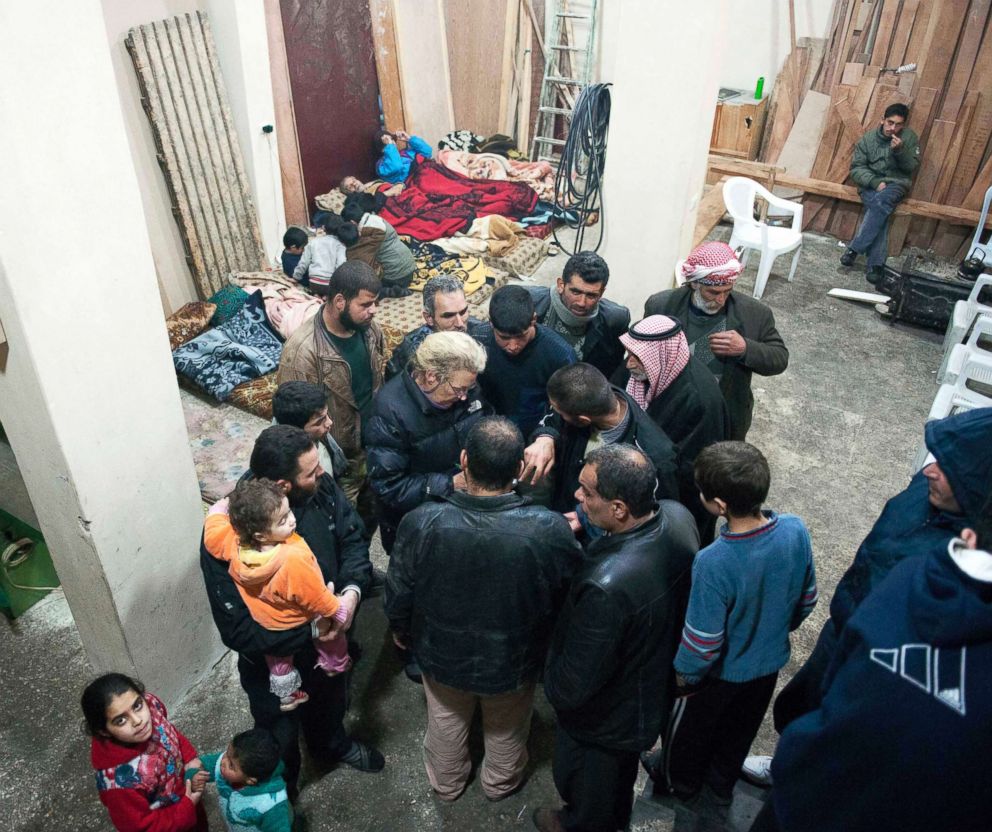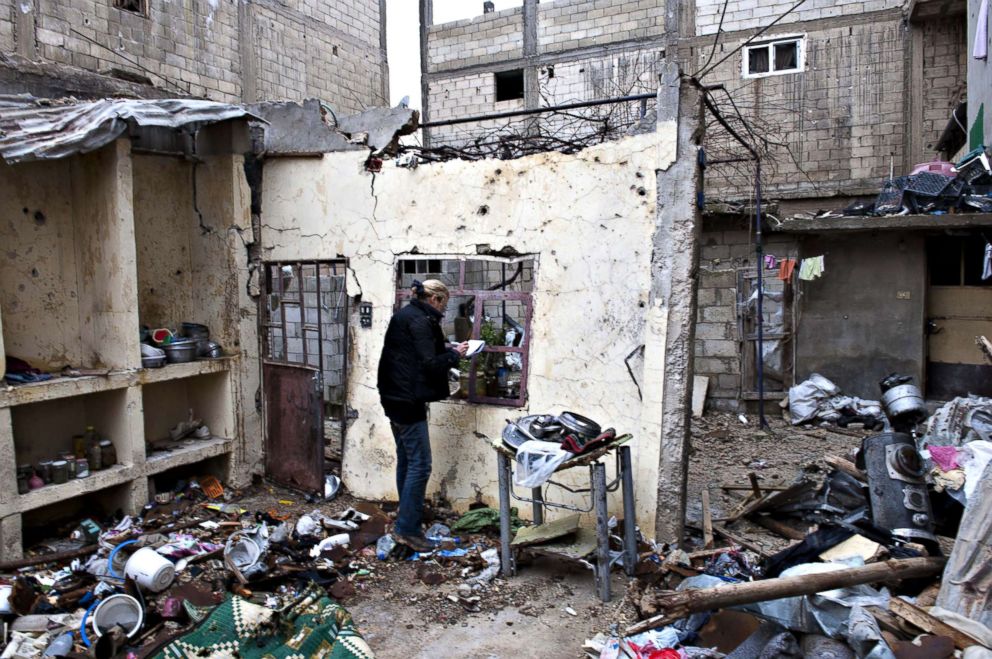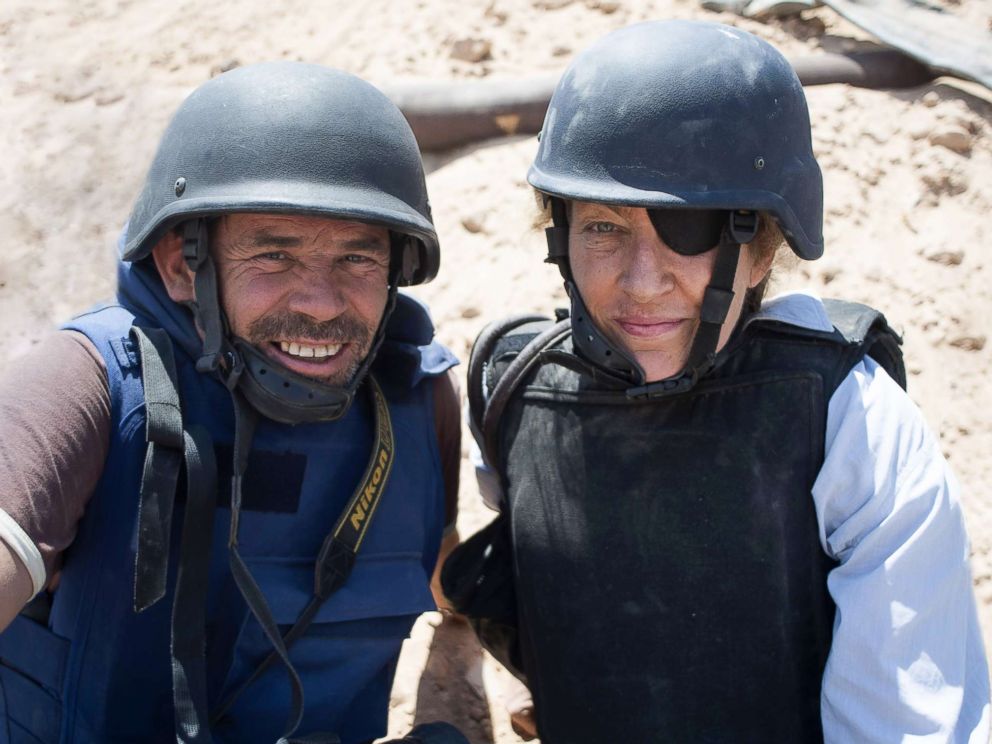US embassy in Syria commemorates killed journalist as humanitarian disaster worsens
Marie Colvin was killed by a Syrian airstrike in 2012.
As the humanitarian crisis in the last rebel-held province in Syria deteriorates, the U.S. embassy in Syria has commemorated the journalist Marie Colvin, killed by government forces while reporting in the war-torn country, on the eighth anniversary of her death.
Colvin was killed in Homs in February 2012 by a Syrian airstrike while reporting from in the early months of the now eight-year long civil war at the age of 56. Colvin, a native of Oyster Bay, New York, spent the best part of three decades reporting from warzones, primarily as the Middle East correspondent for the Sunday Times.
The U.S. embassy in Syria tweeted in both English and Arabic on Sunday and Monday, highlighting that Colvin is one of more than 120 journalists killed in Syria since 2011.

The embassy account added that the “perpetrators of these barbaric acts must be held accountable” and that the U.S. would continue to illuminate the crimes of the President Bashar Al-Assad’s Syrian government regime, which includes the “repeated use of chemical weapons, torture, arbitrary detention, and enforced disappearances.”
In 2019 a U.S. federal court ordered that the Syrian government were liable for the killing, and ordered that the family of Marie Colvin be paid over $300,000,000 in damages. The Syrian government have never responded to the suit, but maintains it does not know who killed her.
Colvin’s life and legacy has inspired both a Hollywood movie starring Rosamund Pike and a critically acclaimed documentary, “Under the Wire.”

Paul Conroy, who worked side by side with Colvin as her photographer throughout the 2000s, and was with her at the time of their death, said that the Syrian conflict was “completely different” from anything they had seen before.
"Even before we arrived, we were told by Lebanese intelligence that if journalists were caught near Homs, they were to be executed and have their bodies thrown onto the battlefield," he said prior to the premiere of the documentary in 2018.
Colvin was killed by a Syrian rocket, along with the French photographer Remi Ochlik, while on assignment at a local field hospital. Conroy managed to escape on the back of a rebel motorcycle after being trapped inside the rubble for four days.

“She died telling the story of the people of Homs and what was being done to them,” he said.
The anniversary of her death, eight years later, is all the more poignant as the civil war in Syria enters its desperate final phase.
Almost a million people are in a state of “grave danger” as government forces advance on Idlib, the last rebel-held region in the country. Over 900,000 people have fled their homes in Idlib since Dec. 1, 2019, with the UN describing the situation as “disastrous and getting worse.” Most of those internally displaced are women and children.
The fighting has seen Russia and Syria in conflict with Turkey, a U.S. ally, and there has been a growing chorus of international calls for the U.S. to do more to halt the humanitarian crisis.




